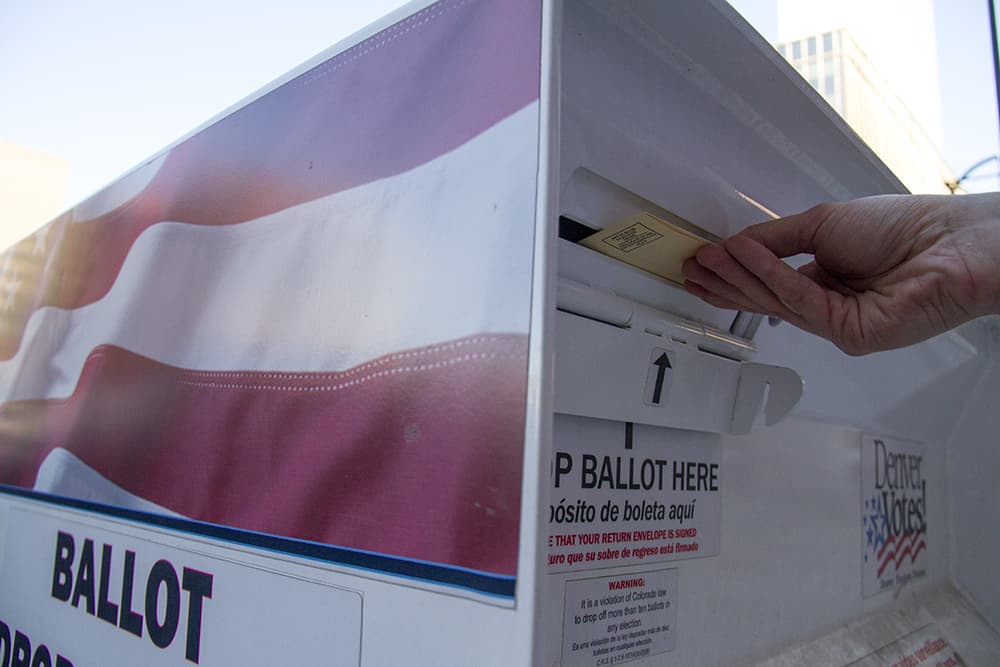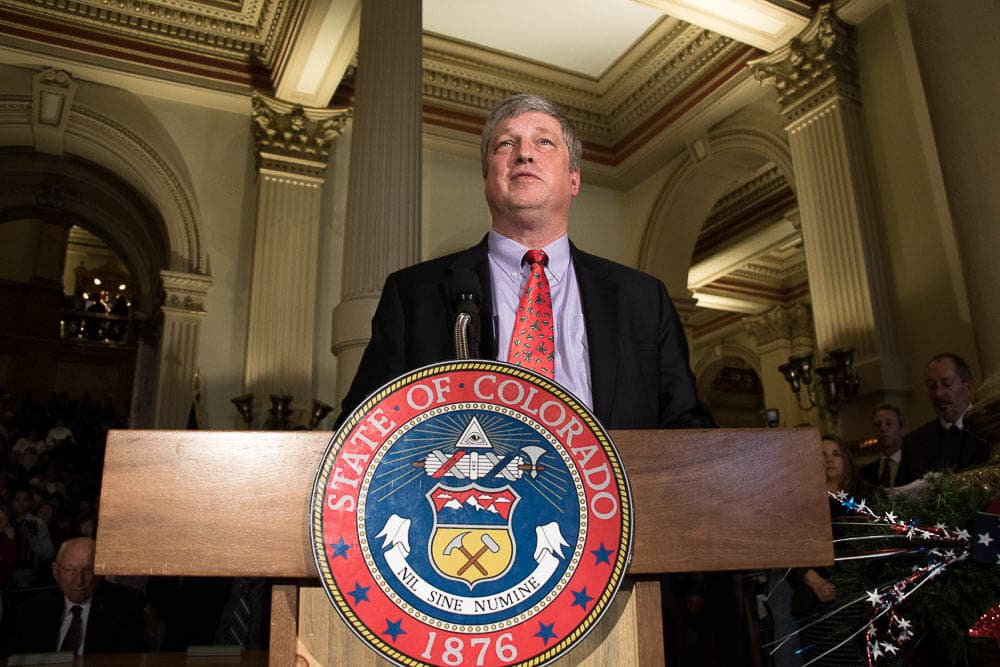
After asserting without basis that between 3 million and 5 million people voted illegally in last November's election, President Donald Trump created the Presidential Advisory Commission on Election Integrity. And that commission, in turn, has asked all 50 states to turn over their voter rolls.
A bunch of states, including several with Republican secretaries of state, have refused, while Colorado Secretary of State Wayne Williams, also a Republican, has said he'll turn over voter registration information that is already public record under state law -- but not confidential information like Social Security numbers, driver's license numbers and full dates of birth.
If you want to protect your information, you can go to your local county clerk and request to become a confidential voter.
First, here's everything that will be turned over to the commission:
- full name
- address
- year of birth
- political party
- vote history
And here's something to be clear about: Your vote history isn't a record of how you voted. Your vote and your ballot are confidential and not traced back to you once you've voted. Vote history refers to the record of which elections you've voted in. The commission would be able to see if you only vote in presidential general elections or if you show up for every primary and municipal election, but not who you voted for.
All that information is public record under Colorado law, and the secretary of state can't withhold it based on what the recipient might do with it. Political parties collect this information on a regular basis.

However, if you don't want this election integrity commission to have your information -- or if you didn't realize it was public and you don't want anyone to have it -- you can ask to become a confidential voter. This process was created with victims of domestic violence and stalking in mind and requires voters to go in person to the county where they are registered and sign an affidavit that asserts they have "reason to believe that [they], or a member of [their] immediate family who resides in the same household as [them], will be exposed to criminal harassment ... or otherwise be in danger of bodily harm, if [their] address is not kept confidential."
The law only requires that your address be concealed, but it is the current practice of both the Denver Division of Elections and the Colorado Secretary of State's Office to hide all the voter information, including the name, for people who ask to become confidential voters.
The previous secretary of state left more information visible. Privately run voter databases may still show information about confidential voters if they're using both new and old files. There is no way to go back and remove information from data that's already been released.
That affidavit is pretty much on the honor system.
"We don't have a team of investigators to go check that out," Arapahoe County Clerk and Recorder Matt Crane said.
I'm not encouraging anyone to lie. When you sign an affidavit, you're doing so under penalty of perjury. Only you know how threatened you feel by the release of your voter registration information to this commission. For what it's worth, cybersecurity experts have raised questions about the methods the commission has said it will use to collect this information, as well as their intention to make it public. "Beyond stupid," is how one expert put it to Politico.
Denver Director of Elections Amber McReynolds said it's up to voters to decide if they can sign the affidavit in good faith.
"If someone asks about their record being public, we advise them there is a confidential request form. They need to read it and decide if it applies to them," she said. "We have no way to evaluate that, and I would not want to be involved in that. It's a pretty broad net of people who might fall into this. Many people could be concerned about this, whether from a professional or a personal perspective."
In addition to the affidavit, there is generally a $5 fee to become a confidential voter, though some counties will waive that fee in some circumstances.
It's not clear exactly how long you have to make this change.
The letter from commission vice chair Kris Kobach, the Kansas secretary of state, asked for a response from the states by July 14, next Friday. The information hasn't gone out to the commission yet, and Williams' spokeswoman, Lynn Bartels, said data will be scraped at 8 a.m. July 14.
So, sooner is better than later.
When a staff member in a county clerk's office receives a confidential voter request, it's usually a matter of making one entry, and from that point on, the voter's information wouldn't appear in subsequent requests for the voter rolls. It should be effective more or less immediately.
However, previous iterations of the voter rolls, such as those released to the political parties each month, would still have your information.
What's the big deal about turning over voter roll information?
Trump asked as much in a Tweet that said uncooperative states must have something to hide.
"Numerous states are refusing to give information to the very distinguished VOTER FRAUD PANEL. What are they trying to hide," Trump tweeted on Saturday.
Civil rights advocates fear that the commission is laying the groundwork for widespread disenfranchisement and voter suppression that will hit poor and minority voters the hardest. Kobach, the commission's vice chair, has made Kansas one of the hardest states in which to vote. There are always one-off instances of people (Republicans as well as Democrats) voting twice, people being double-registered, non-citizens voting and dead people voting. Some of these cases would turn up in an analysis of the rolls in every state. These generally aren't cases of organized voter fraud, though, and the question is whether the cure is worse than the disease. Aggressive purging of the voter rolls tends to exclude more legitimate voters than it catches illegitimate voters, by a very wide margin.
Clarification: This article has been updated to include comment from Denver Director of Elections Amber McReynolds and clarify what it means to be a confidential voter.











